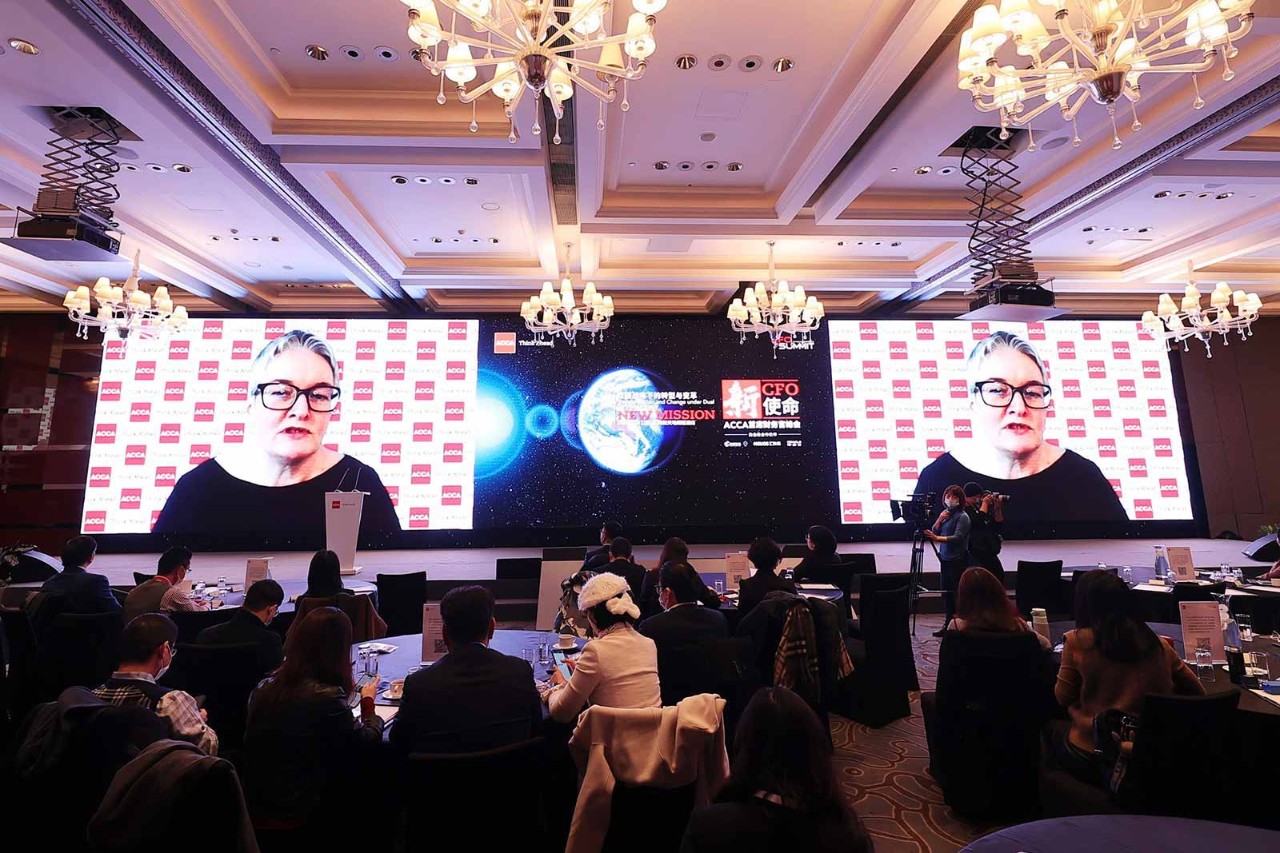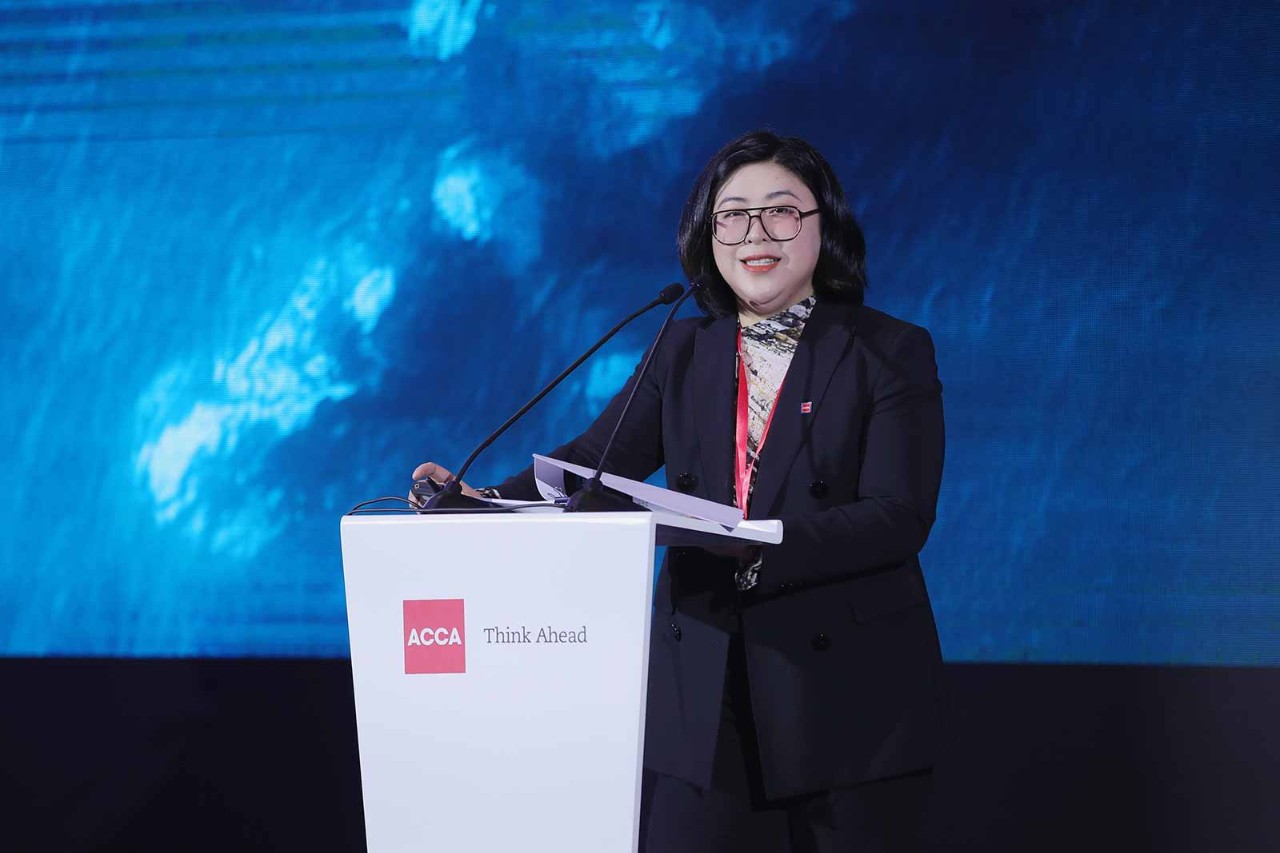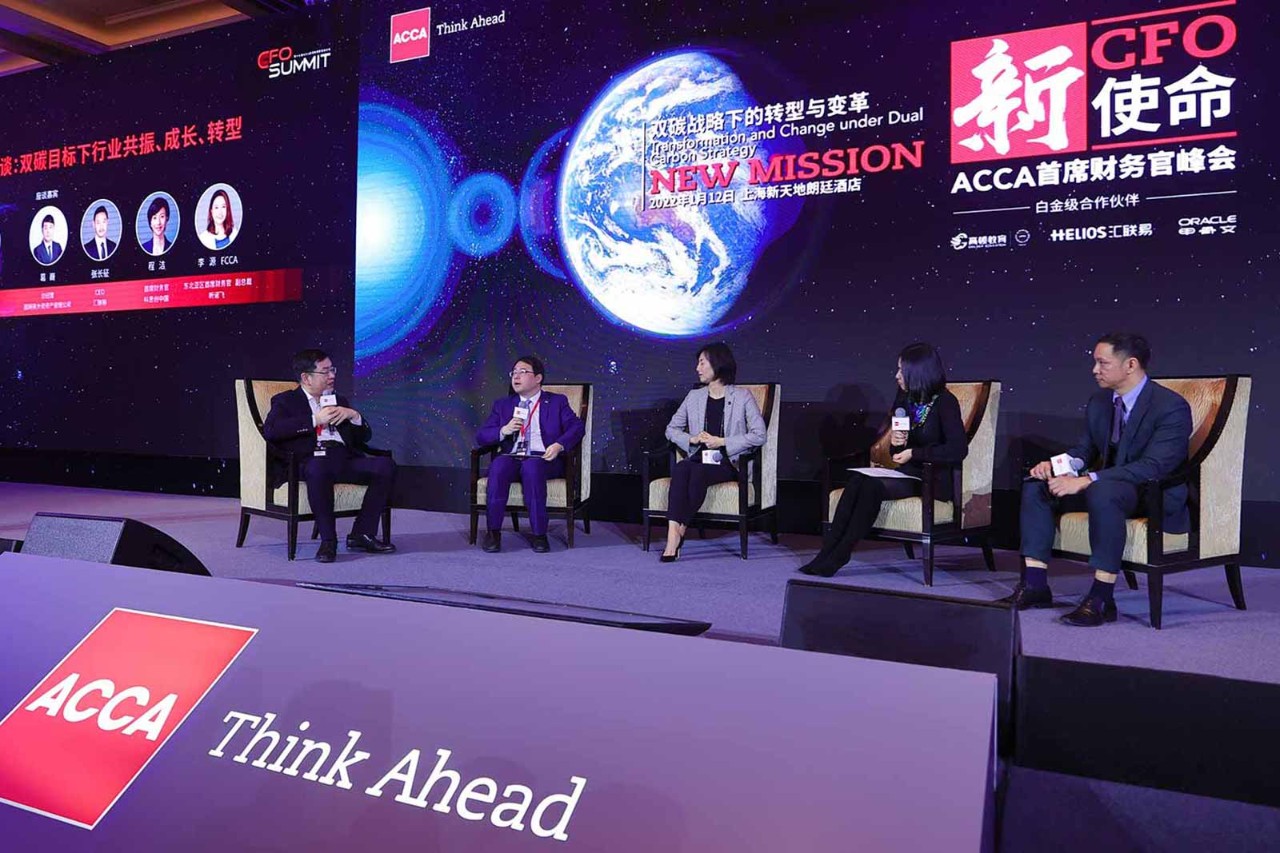
Sustainability was top of the agenda at the recent ACCA CFO summit, with business leaders diving deep into challenges and opportunities en route to cutting carbon emissions and driving transformation.
The Shanghai event attracted more than 10,000 participants – both online and in person – including economists, business leaders, entrepreneurs and technical experts representing industries such as energy, manufacturing and technology.
The theme of sustainability has moved to ‘the top of the agenda for business and government everywhere in the world’, as extreme weather such as wildfire, tornadoes, rising floodwaters and drought occur more frequently, noted ACCA chief executive Helen Brand in a televised address to participants.
‘At ACCA we believe that CFOs must be in the frontline of the effort to combat the climate crisis,’ Brand said. ‘It is about how we reshape our economies to ensure that societies everywhere can thrive to the second half of the century and beyond.’
With the growing influence of the finance function in every area of business, CFOs now serve at the right hand of CEOs and are encouraged to act decisively on crucial environmental issues, she said.
‘ACCA is a pioneer of digital finance; it has been embedded into our qualification and all of our education for a long time’

Technology drives sustainability
Speakers called for digital technology to drive transformation from a carbon- and fossil fuel-based economy to one that has sustainability at its core and paves the way for new business models.
‘Today, more and more small enterprises are finding new opportunities in digitalisation,’ said Yuki Qian, regional head of policy at ACCA China, referring to an app enabling farmers to predict the blossom season so that they know in advance where to keep bees. ‘To business leaders, the key to digital transformation lies in what we hope to achieve and what drives our action.’
‘ACCA is a pioneer of digital finance; it has been embedded into our qualification and all of our education for a long time,’ Brand said. ‘The businesses of tomorrow will be led by individuals who are ready to understand and to harness the awesome power of new technologies – super-fast communications, global connectivity, artificial intelligence, robotics, automation and big data. Our people are ready and well-equipped to lead in these areas.’
Carbon pledge
The discussion came following mainland China’s pledge to reach carbon neutrality by 2060, in a move consistent with the 2015 Paris Agreement’s aim of limiting global warming to 1.5C. Mainland China, which produces 27% of global emissions – followed by the US’s 15% – is expected to invest 136 trillion yuan (US$21.1 trillion) to fund the green push.
Such commitment entails industrial upgrade on all fronts, from the shift in energy consumption to the development of new, recyclable material and the construction of intelligent factories and plant facilities, according to Qian.
Besides public funding, the carbon-neutral pledge will also require social capital to support industrial, technological and facility upgrade; here, Qian said, financial professionals would be expected to play a crucial role.
‘It’s crucial to include emissions in KPIs in order to push for top-down implementation’

‘Our survey shows that while less than a quarter of companies have integrated climate KPIs [key performance indicators] into their business strategy and/or risk frameworks, 75% of interviewees believe the finance department should take action to tackle challenges arising from climate change,’ she said.
‘Besides regulatory requirement and green financing support, an ACCA poll shows that employees in the younger generation wish to work for companies with a higher mission,’ she added. ‘All of these factors collectively drive the ESG push from the corporate side.’
Jiang Lan, financial director, GRC market at Signify China (formerly Philips Lighting), a company whose Chinese factories achieved carbon neutral in 2020, echoed Qian’s comment: ‘It’s crucial to include emissions in KPIs in order to push for top-down implementation. Once an ESG mechanism is set up in China, when companies disclose in their annual filings, investors, shareholders, analysts and all stakeholders can track long-term growth of a company and analyse its real value and direction of strategy.’
Carbon accounting
Delegates also received an update on mainland China’s national emissions trading scheme – the biggest of its kind in the world. Launched in July 2021, its daily carbon trading volume has reached record high of over 10 million tons of CO2e.
Apart from the tangible and intangible asset categories that we are familiar with, the emergence of the carbon market has brought in another asset genre. ‘Although it cannot be seen or touched, the carbon asset is connected to real assets and can be generated from all sorts of emission reduction efforts and green behaviours, said Ge Wei, general manager of State Grid Yingda Carbon Asset Management, a financial subsidiary of State Grid.
‘Reaching consensus among various stakeholders is an indispensable step to achieving the carbon-neutral goal’

Ge noted that the emergence of the carbon asset has been accompanied by a series of discussions in accounting management around areas such as measurement accuracy, price fluctuations, appreciation on investment and the possibility of refinancing, all of which make the role of CFOs even more crucial.
‘Against the backdrop of global climate change, we hope CEOs and CFOs from each and every one of the responsible companies grow into top-notch carbon specialists, not only managing carbon assets well but also committing to sustainable operations and creating more ecological value at both corporate and social level,’ Ge added.
The CFO as a driver
Finally, the role of the CFO was discussed. ‘As an important management figure overseeing the intersection of business strategy, financing and operations, the CFO is naturally, and should be, a key driver of green initiatives,’ said Cheng Jie, CFO at leading materials and application solution provider Covestro in China.
‘Reaching consensus among various stakeholders is an indispensable step to achieving the carbon-neutral goal, which requires CFOs to engage attentive communication, seek common ground across the supply chain and push for efficient allocation of resources while being sensitive to industry policies, the market and macro environment,’ she said.



